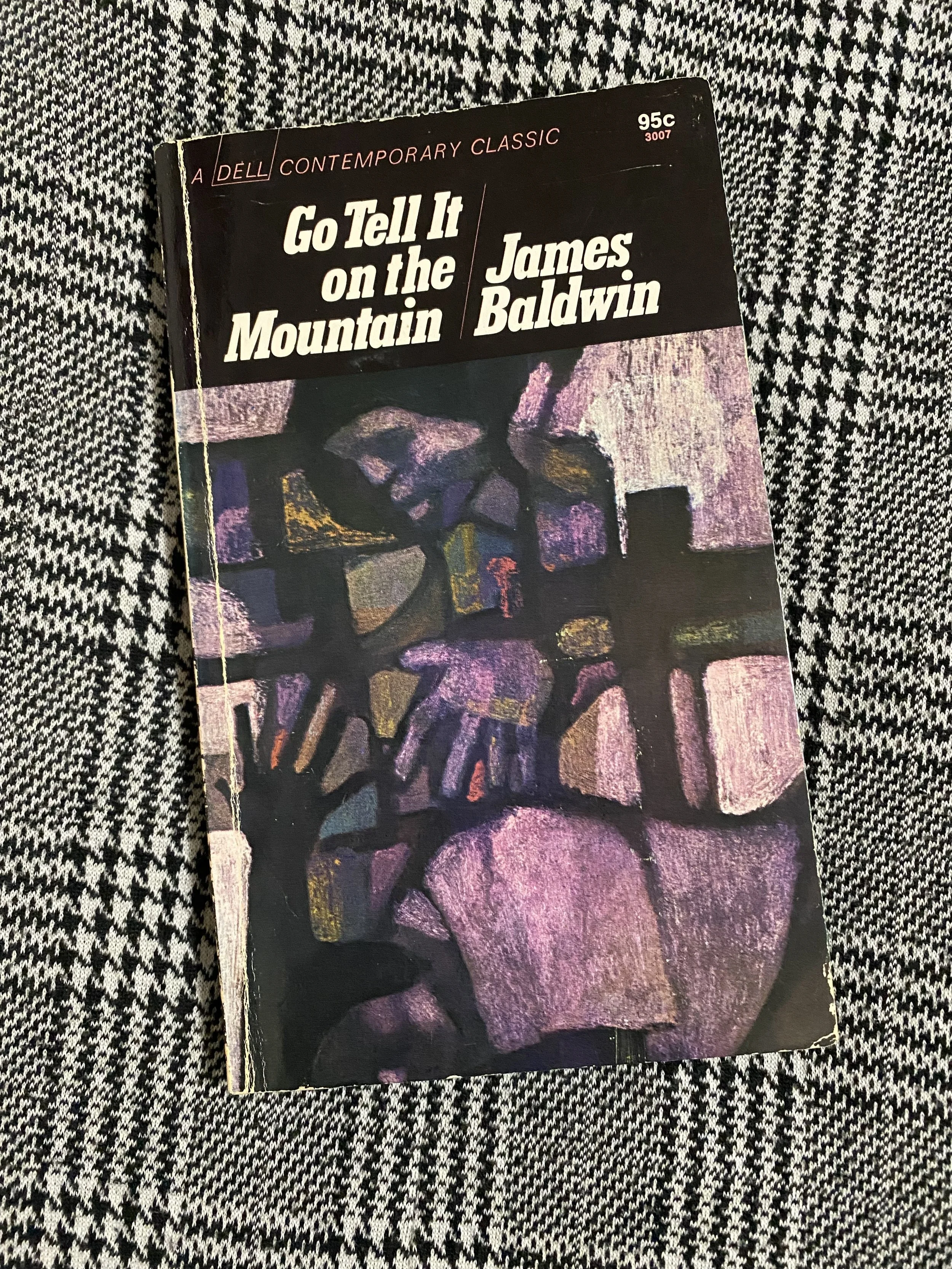4/5 stars
What's it about? On his fourteenth birthday, John debates the state of his soul as an awakening slowly overtakes him. A masterpiece work of history, faith, and family.
How’d I find it? All of Baldwin is required reading, but I found this particular paperback at a library sale. That pulp paper still smells delicious.
Who will enjoy this book? If you liked William Faulkner’s Light in August or Toni Morrison’s Song of Solomon, you’ll appreciate Go Tell It on the Mountain.
What stood out? Baldwin is such a master of the page. I love how he builds momentum in a scene, especially if it involves a service at Temple of the Fire Baptized (see below). The religious setting of the novel brings into relief its other themes, including the complexity of family and the impossibility of salvation for people of color in a racist America. A book one will want to revisit.
Which line made me feel something? “Someone moved a chair a little to give them room, the rhythm paused, the singing stopped, only the pounding feet and the clapping hands were heard; then another cry, another dancer; then the tambourines began again, and the voices rose again, and the music swept on again, like fire, or flood, or judgment.”







